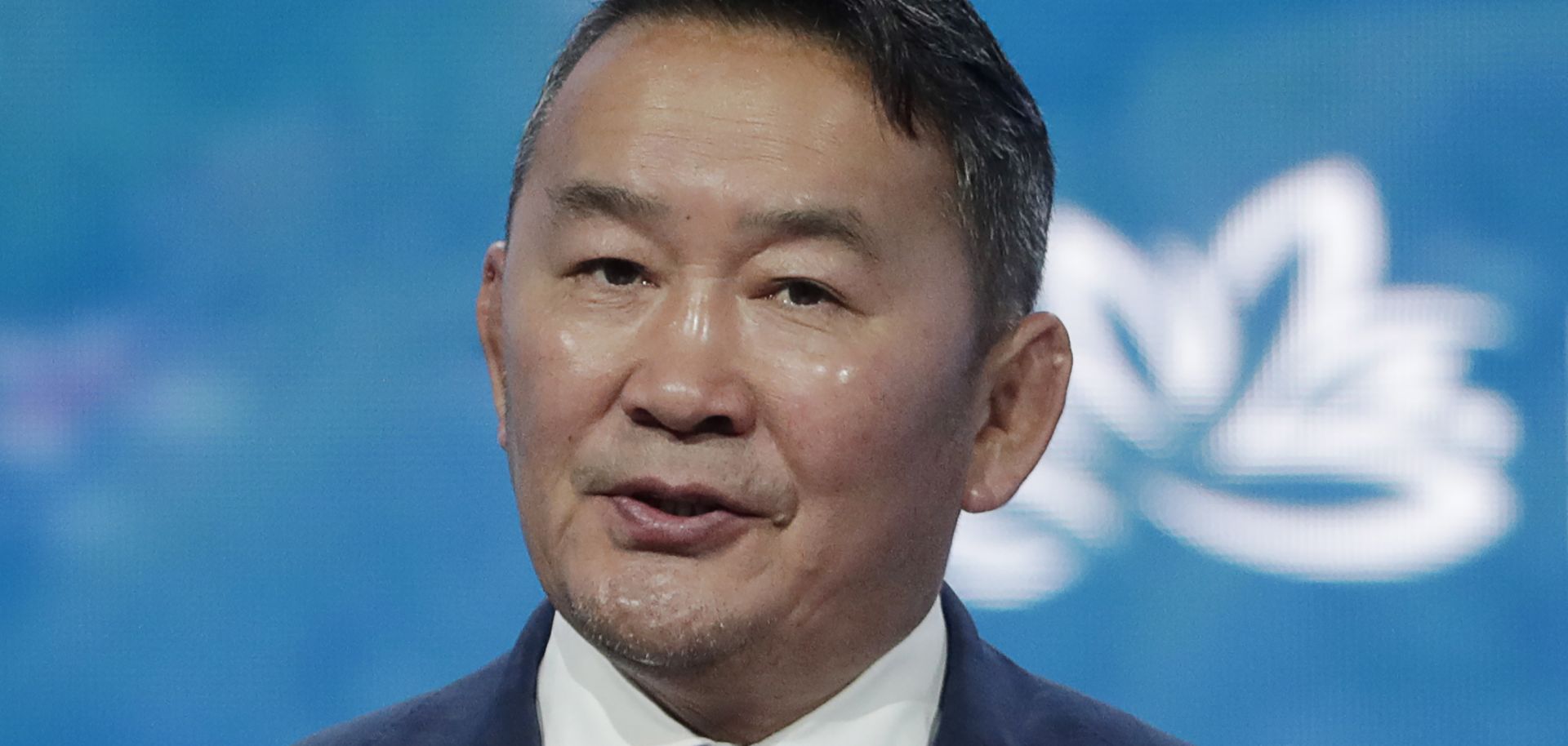GLOBAL PERSPECTIVES
How Great Power Competition Is Changing the Geopolitics of Mongolia


Jan 24, 2020 | 10:00 GMT

Mongolian President Khaltmaa Battulga speaks on Sept. 5, 2019, during the Eastern Economic Forum in Vladivostok, Russia. Under Battulga, Mongolia has been deepening its relationship with Russia.
(MIKHAIL METZEL\Tass via Getty Images)
Highlights
- To protect its sovereignty and independence, Mongolia has walked a geopolitical tightrope tethered by a "good neighbor" policy with Russia and China and a "third neighbor" policy with the United States and other countries.
- The great power competition among China, Russia and the United States is changing the calculus on Mongolian sovereignty; the most visible feature of that competition is China's emergent regional and global hegemony.
- For Mongolia, deepening its relationship with Russia and its strategic alliances with select allies will strengthen prospects for a hard global pushback from multiple directions should China ever decide to seriously threaten Mongolia's sovereignty and independence.
Subscribe Now
SubscribeAlready have an account?
